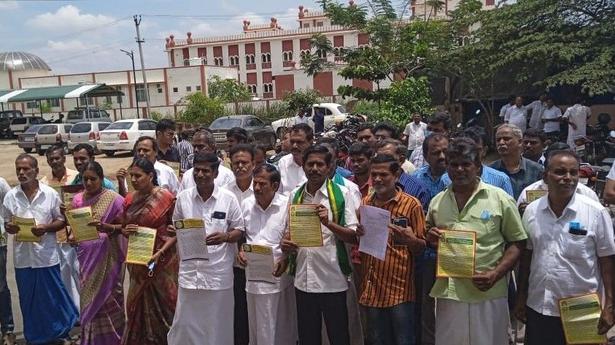
Farmers’ union demands probe into stone quarries in Tiruppur border areas
The Hindu
TIRUPPUR A delegation of Thamizhaga Vivasayigal Padhukappu Sangam staged a demonstration outside the
A delegation of Thamizhaga Vivasayigal Padhukappu Sangam staged a demonstration outside the Tiruppur Collectorate on Monday demanding a probe into the functioning of stone quarries in Tiruppur - Coimbatore district border areas.
The 36 stone quarries that were functioning in Kodangipalayam and Ichipatty villages in Palladam taluk for more than 20 years had violated the norms of the Tamil Nadu Pollution Control Board (TNPCB) and mines department, the farmers alleged.
Eesan, co-ordinator of the Sangam, said the air and water in the nearby villages were highly polluted because of the stone quarries. He also alleged that there was an illegal extraction of minerals going on beyond the approved levels. The norms prescribed by the TNPCB such as creating a green line in which trees had to be planted 10 m around the periphery of the quarry was violated. Rash driving of heavy vehicles also posed a threat to the villagers. People living in the villages were suffering from asthma because of the pollution, he alleged.
The delegation met the Personal Assistant (General) to the District Collector and submitted a petition in this connection. The official received a total of 549 petitions relating to land patta, old age pensions, road facilities and new ration cards. He also resolved a few petitions immediately and directed the department officials to redress the other grievances at the earliest.













